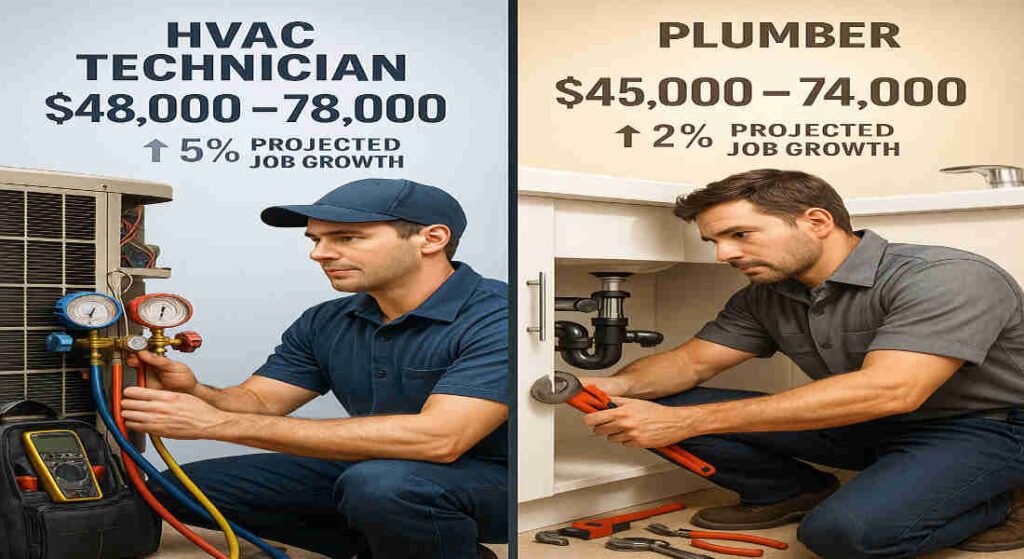When choosing a career in the skilled trades, one of the most common questions is: Does HVAC or home plumbing pay more? Both professions are integral to everyday life, offer stable career paths, and provide competitive salaries. However, they differ in terms of responsibilities, earning potential, and career growth opportunities.
Both HVAC technicians and home plumbers play crucial roles in maintaining comfort and functionality in homes and businesses. Without them, modern living would be far less convenient. But for anyone considering these trades, understanding the salary differences is key to making a smart career choice.
Overview of HVAC and Home Plumbing Careers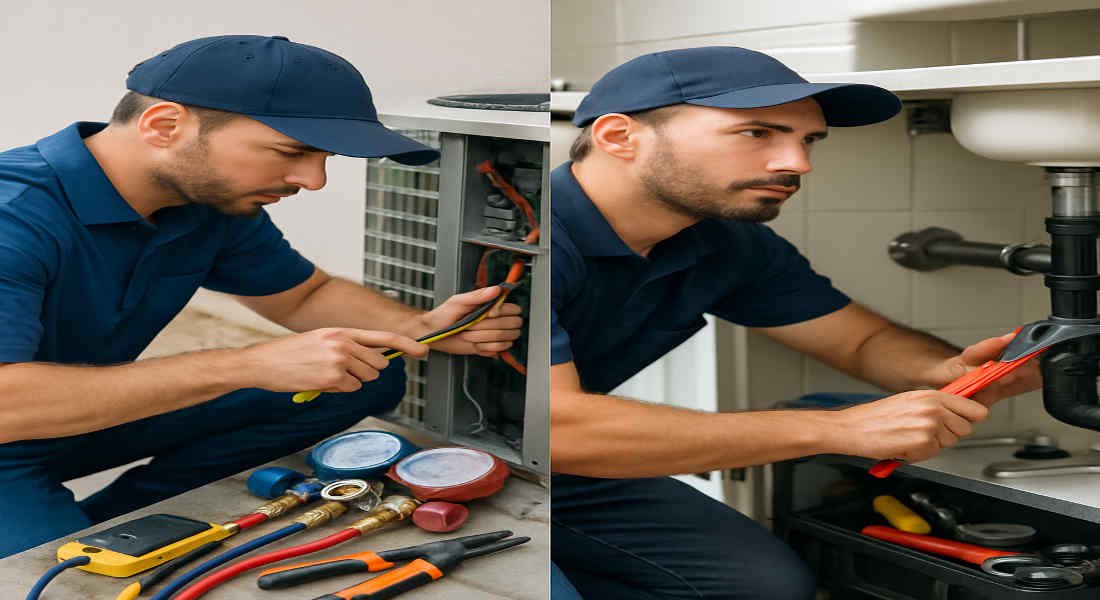
Before diving into salary comparisons, it’s important to understand what each trade entails. Both HVAC and plumbing are skilled trades that require technical expertise, problem-solving abilities, and physical labor, but they focus on different aspects of home and building systems.
What Does an HVAC Technician Do?
An HVAC technician is responsible for installing, maintaining, and repairing heating, ventilation, and air conditioning systems. These systems regulate indoor air quality and temperature, making them essential for comfort in homes, offices, and industrial settings.
- Typical tasks include:
- Installing HVAC units, ductwork, and thermostats.
- Diagnosing and repairing system issues.
- Conducting routine maintenance to improve system efficiency.
- Working with refrigerants and electrical components.
- Work environments: HVAC technicians may work in residential, commercial, or industrial settings. They often spend time in attics, basements, or outdoors, depending on the job.
What Does a Plumber Do?
A plumber specializes in installing, maintaining, and repairing water supply and drainage systems. From fixing leaky faucets to designing complex piping systems, plumbers ensure that water flows efficiently and safely.
- Typical tasks include:
- Installing and repairing pipes, fixtures, and appliances (e.g., sinks, toilets, water heaters).
- Clearing clogged drains and sewer lines.
- Ensuring compliance with local plumbing codes.
- Handling emergencies like burst pipes or flooding.
- Work environments: Plumbers work in homes, commercial buildings, and industrial facilities. Their work often involves working in tight spaces, lifting heavy objects, and exposure to water and waste systems.
Average Salaries and Pay Ranges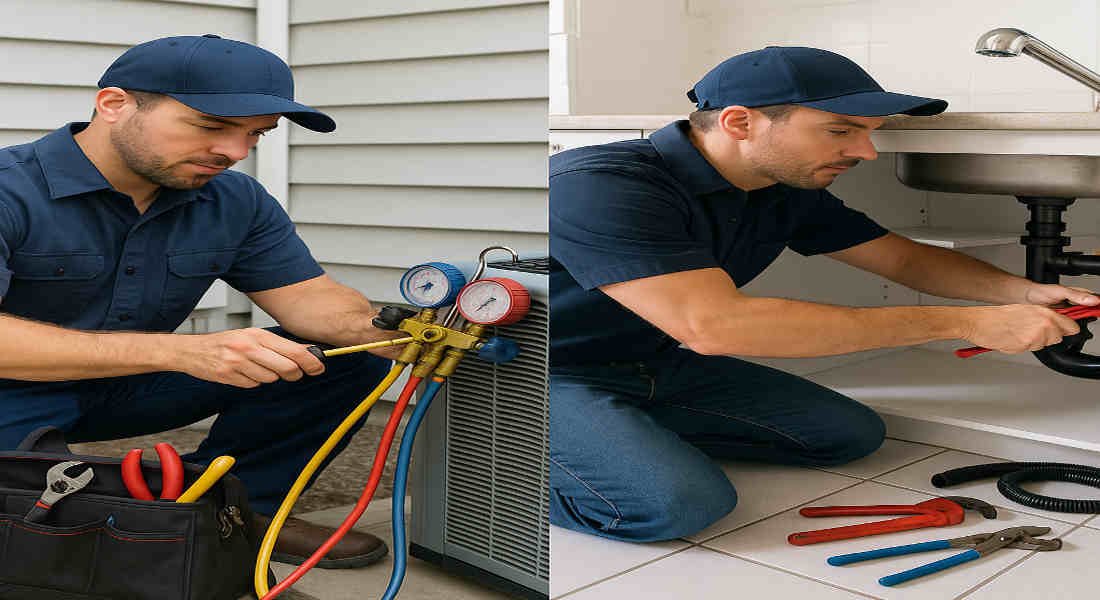
Now that we’ve covered the basics of each trade, let’s dive into the numbers. How do salaries for HVAC technicians and plumbers compare?
You may also read (the role of math in effective house plumbing).
National Average Salaries
- Plumbers: On average, plumbers earn between $55,000 and $61,000 per year, with top earners making over $150,000 annually.
- HVAC Technicians: HVAC techs have an average salary of $48,000 to $50,000 per year, with the potential to earn up to $121,000 annually in high-paying roles.
Entry-Level vs. Experienced Earnings
Career StagePlumber SalaryHVAC Technician Salary
Entry-Level $35,000 – $45,000 $30,000 – $40,000
Mid-Career $55,000 – $75,000 $50,000 – $70,000
Top Earners $100,000 – $150,000+ $90,000 – $121,000+
Key Insights:
- Plumbers generally earn slightly more on average compared to HVAC technicians.
- HVAC techs, however, can match or exceed plumber salaries by excelling in sales-based roles (e.g., offering system upgrades or maintenance contracts).
Pay Structures: Hourly, Salary, and Commission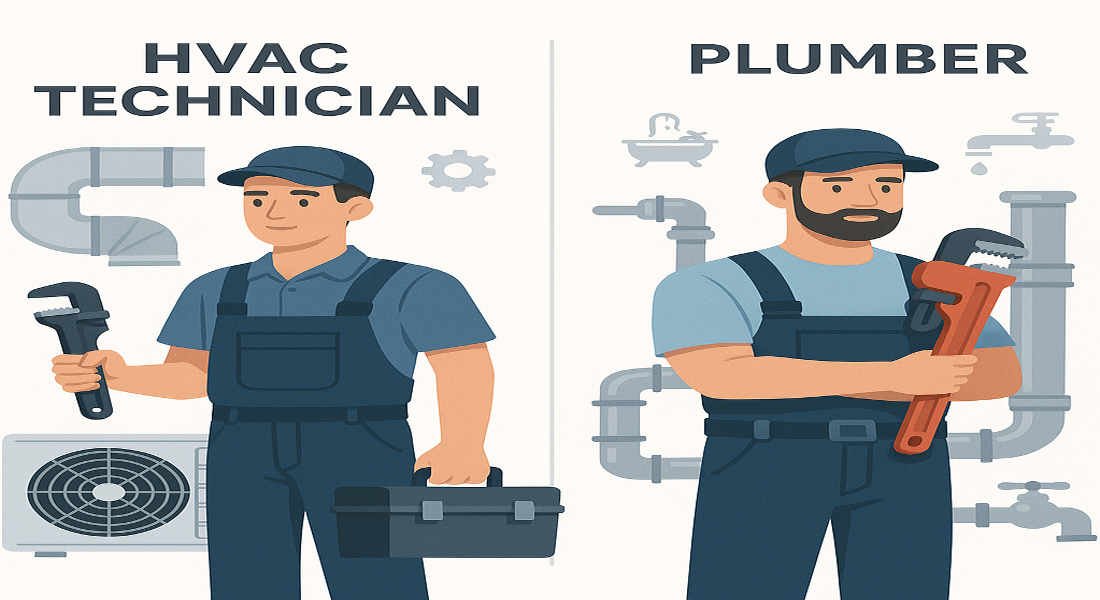
Earnings in both trades vary depending on the pay structure. Let’s break it down:
Hourly vs. Salaried Positions
- Hourly Pay: Most plumbers and HVAC technicians start with hourly wages. Rates vary by location, but experienced workers can earn between $20 and $50 per hour.
- Salaried Positions: Supervisory or management roles in both trades offer stable annual salaries, often ranging from $70,000 to $120,000.
You may also read (how to manage home plumbing during power outages).
Commission-Based Pay
For HVAC technicians, commission-based pay is a major factor in boosting income. Residential service techs often earn commissions for:
- Selling new HVAC systems.
- Recommending maintenance plans.
- Upselling parts and accessories.
Plumbers may also earn commissions, but it’s less common compared to HVAC roles.
Residential vs. Commercial Work
- Residential Work: Offers more opportunities for commissions and bonuses.
- Commercial Work: Typically provides higher base pay but fewer sales opportunities.
Factors Influencing Earnings in HVAC and Plumbing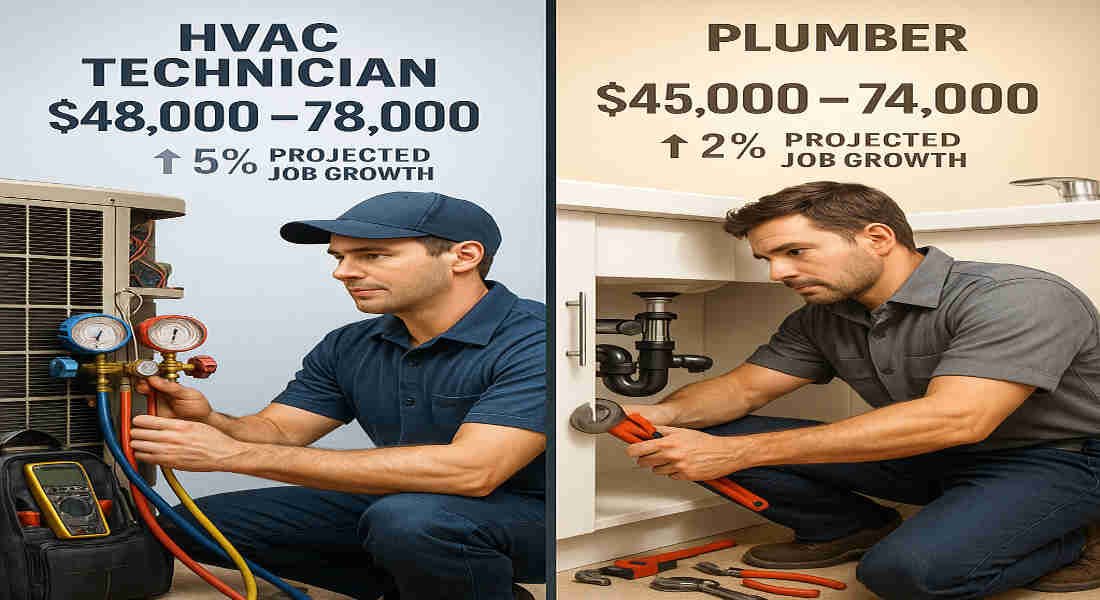
Several factors determine how much you can earn in these trades:
Geographic Location
- Urban areas and states with high demand (e.g., California, New York, Texas) pay more.
- Rural areas may offer lower wages but less competition.
Certifications and Skills
- Specialized skills, like pipefitting or HVAC controls, command higher pay.
- Advanced certifications (e.g., NATE for HVAC, Journeyman for plumbers) boost earning potential.
Experience
The longer you’ve been in the trade, the more you earn. Seasoned professionals can double or triple their starting salaries.
Demand and Job Growth
- HVAC: Employment is projected to grow 5% from 2025 to 2030, driven by increasing demand for energy-efficient systems.
- Plumbing: Demand remains strong due to aging infrastructure and new construction.
Job Security and Career Growth Potential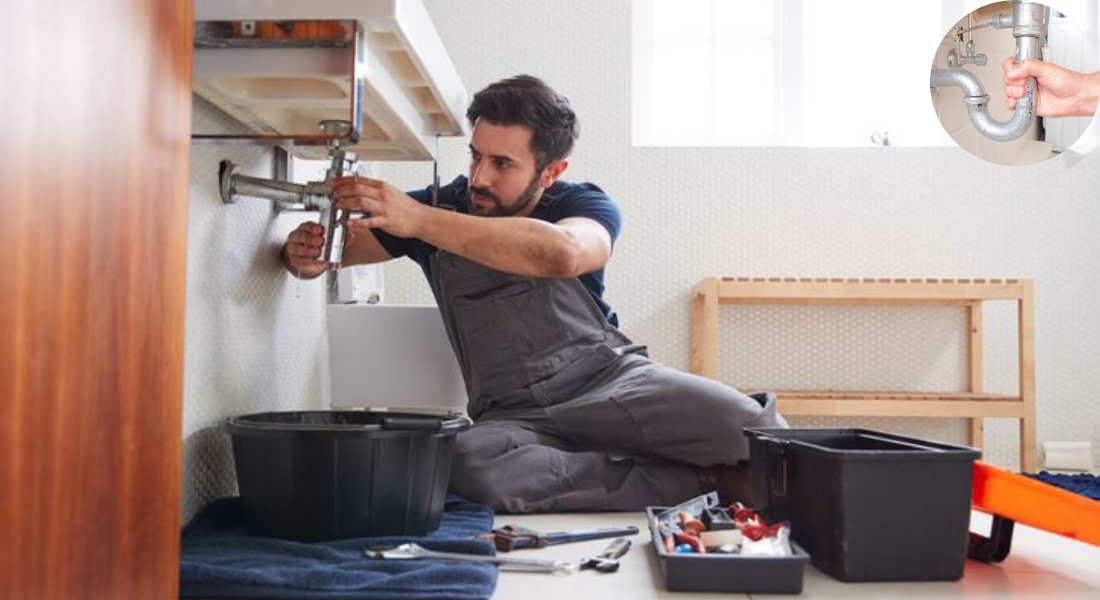
Both trades offer excellent job security, but let’s compare career growth opportunities:
Career Advancement
- HVAC: Opportunities include becoming a supervisor, starting a business, or specializing in high-demand areas, such as smart HVAC systems.
- Plumbing: Paths include supervisory roles, pipefitting, or launching your own plumbing business.
Combining Skills
Some professionals choose to get certified in both HVAC and plumbing, significantly increasing their marketability and earning potential.
Cost of Training and Entry Barriers
The cost of entering these trades is another factor to consider:
Aspect HVAC Training Plumbing Training
Training Duration 6 months to 2 years 2 to 5 years (apprenticeship)
Typical Costs $5,000 – $15,000 $2,000 – $10,000
Certifications Needed: EPA Certification, NATE Journeyman, Master Plumber
Work Environment and Job Satisfaction
Finally, consider the physical demands and job satisfaction of each trade:
Physical Demands
- HVAC: Often involves working in extreme temperatures and tight spaces.
- Plumbing: This role may involve heavy lifting and exposure to water or waste.
Job Satisfaction
Both careers are rewarding for those who enjoy problem-solving and helping customers, but personal preferences play a big role.
Which Trade Pays More? Summary and Expert Insights
So, does HVAC or home plumbing pay more?
- On average, plumbers earn more than HVAC technicians.
- However, HVAC techs with strong sales skills can match or exceed plumber salaries.
Ultimately, success in either trade depends on your skills, location, and career focus.
Tips to Maximize Earnings in HVAC and Plumbing
Here are some actionable tips to boost your income:
- Pursue Advanced Certifications: Specialized skills lead to higher pay.
- Develop Sales Skills: This is especially important for HVAC technicians.
- Consider Dual Training: Being certified in both trades increases marketability.
- Target High-Demand Areas: Urban areas offer better pay opportunities.
- Stay Updated: Learn about new technologies like smart HVAC systems or modern plumbing techniques.
You may also read (what does fip mean in home plumbing).
